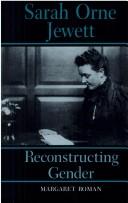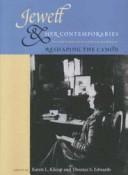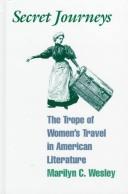| Listing 1 - 7 of 7 |
Sort by
|
Book
ISBN: 3839446007 9783839446003 3837646009 9783837646009 Year: 2018 Publisher: Bielefeld transcript Verlag
Abstract | Keywords | Export | Availability | Bookmark
 Loading...
Loading...Choose an application
- Reference Manager
- EndNote
- RefWorks (Direct export to RefWorks)
Why did the novel become so popular in the past three centuries, and how did the American novel contribute to this trend? As a key provider of the narrative frames and formulas needed by modern individuals to give meaning and mooring to their lives. Drawing on phenomenological hermeneutics, human geography and social psychology, Laura Bieger contends that belonging is not a given; it is continuously produced by narrative. Against the current emphasis on metaphors of movement and destabilization, she explores the salience and significance of home. Challenging views of narrative as a mechanism of ideology, she approaches narrative as a practical component of dwelling in the world - and the novel a primary place-making agent. O-Ton: »US elections: is US media more polarized than the people?« - Laura Bieger in The Northern Times on 02.12.2020. Besprochen in: IDA-NRW, 4 (2018)
American fiction --- History and criticism --- Theory, etc. --- America. --- American Novel. --- American Studies. --- Cultural History. --- Cultural Studies. --- Literary Studies. --- Literature. --- Space and Place. --- Narrative Theory; American Novel; Space and Place; Literature; America; American Studies; Cultural History; Cultural Studies; Literary Studies --- Brown, Charles Brockden, --- Jewett, Sarah Orne, --- Roth, Henry. --- Powers, Richard, --- Call it sleep (Roth, Henry) --- Country of the pointed firs (Jewett, Sarah Orne) --- Edgar Huntly (Brown, Charles Brockden)

ISBN: 081739155X 0585228310 9780585228310 9780817391553 0817305335 9780817305338 Year: 1992 Publisher: Tuscaloosa University of Alabama Press
Abstract | Keywords | Export | Availability | Bookmark
 Loading...
Loading...Choose an application
- Reference Manager
- EndNote
- RefWorks (Direct export to RefWorks)
In her book Sarah Orne Jewett: Reconstructing Gender, Margaret Roman argues that one theme colors almost every short story and novel by the turn-of-the-century American author: each person, regardless of sex, must break free of the restrictive, polar-opposite norms of behavior traditionally assigned to men and women by a patriarchal society. That society, as seen from Jewett's perspective during the late Victorian era, was one in which a competitive, active man dominates a passive, emotional woman. Frequently referring to Jewett's own New England upbringing at the hands of an unusually progressive father, Roman demonstrates how the writer, through her personal quest for freedom and through the various characters she created, strove to eliminate the necessity for rigid and narrowly defined male-female roles and relationships. With the details of Jewett's free-spirited life, Roman's book represents a solid work of literary scholarship, which traces a gender-dissolving theme throughout Jewett's writing. Whereas previous critics have focused primarily on her best-known works, including "A White Heron," Deephaven, A Country Doctor, and The Country of the Pointed Firs, Roman encompasses within her own discussion virtually all of the stories found in the nineteen volumes Jewett published during her lifetime. And although much recent criticism has centered around Jewett's strong female characters, Roman is the first to explore in depth Jewett's male characters and married couples. The book progresses through distinct phases that roughly correspond to Jewett's psychological development as a writer. In general, the characters in her early works exhibit one of two modes of behavior. Youngsters, free as Jewett was to explore the natural world of woods and field, glimpse the possibility of escape from the confining standards that society has set, though some experience turbulent and confusing adolescences where those norms have become more pressing, more demanding. At the opposite extreme among these early characters are those who have mindlessly accepted the roles in which they have been trapped since youth--greedy, selfish men, dutiful women who tend emotionally empty houses, young couples unable to communicate either between themselves or with others--in short, characters who are too alienated within their roles to function as whole human beings. On the other hand, Jewett approaches the men and women of her later works with a higher degree of optimism, in that each person is free to live according to the dictates of his or her inherent personality--each character is able to measure life from within rather than from without. This group includes the self-confident men who are not reluctant to present a nurturing side and the warm, giving women who are unafraid of displaying a decided inner strength. As Roman summarizes, "In her writings, Jewett attempts to shift society's focus from a grasping power over people to the personal development of each member of society." Ahead of her time in many ways, Sarah Orne Jewett confronted the Victorian polarized gender system, presaging the modern view that men and women should be encouraged to develop along whatever paths are most comfortable and most natural for them.
Women and literature --- Gender identity in literature. --- Sex role in literature. --- Women in literature. --- Woman (Christian theology) in literature --- Women in drama --- Women in poetry --- Literature --- History --- Jewett, Sarah Orne, --- Criticism and interpretation. --- Maine --- District of Maine --- Maine (District) --- Maine (Province) --- Province of Maine --- Province of Maine of the Massachusetts Bay Colony --- State of Maine --- État du Maine --- Massachusetts --- In literature.
Book
ISBN: 1469625385 9781469625386 9781469625379 1469625377 9781469625362 1469625369 9798890849113 9798890849106 Year: 2015 Publisher: Chapel Hill
Abstract | Keywords | Export | Availability | Bookmark
 Loading...
Loading...Choose an application
- Reference Manager
- EndNote
- RefWorks (Direct export to RefWorks)
"In this thought-provoking study of nineteenth-century America, J. Samaine Lockwood offers an important new interpretation of the literary movement known as American regionalism. Lockwood argues that regionalism in New England was part of a widespread woman-dominated effort to rewrite history. Lockwood demonstrates that New England regionalism was an intellectual endeavor that overlapped with colonial revivalism and included fiction and history writing, antique collecting, colonial home restoration, and photography. The cohort of writers and artists leading this movement included Sarah Orne Jewett, Alice Morse Earle, and C. Alice Baker, and their project was taken up by women of a younger generation, such as Charlotte Perkins Gilman and Pauline Elizabeth Hopkins, who extended regionalism through the modernist moment"--
Regionalism in literature. --- Women and literature --- American literature --- English literature --- Agrarians (Group of writers) --- Literature --- History --- Women authors --- History and criticism. --- New England --- In literature. --- Intellectual life --- History and criticism --- 19th century --- Regionalism in literature --- Gilman, Charlotte Perkins --- Criticism and interpretation --- Hopkins, Pauline Elizabeth --- Jewett, Sarah Orne --- Brown, Alice --- Baker, Charlotte Alice --- Coleman, Emma Lewis --- Lesbianism in literature --- Slosson, Annie Trumbull
Book
ISBN: 0199317054 0199317046 1299832903 0199369259 9780199317059 9780199317042 Year: 2013 Publisher: New York
Abstract | Keywords | Export | Availability | Bookmark
 Loading...
Loading...Choose an application
- Reference Manager
- EndNote
- RefWorks (Direct export to RefWorks)
'American Blood' foregrounds a culture-wide struggle over the definition and value of the family in the nineteenth-century United States. This study offers a new vision of the American novel in this tumultuous period, highlighting works that protest the overvaluation of kinship in American culture, depicting the domestic family as antagonistic to the political enterprise of the United States. Far from venerating the family as the nucleus of the nation, these novels imagine, even welcome, the decline of this institution and the social order it supports.
American literature --- Families in literature. --- Families --- Family --- Family life --- Family relationships --- Family structure --- Relationships, Family --- Structure, Family --- Social institutions --- Birth order --- Domestic relations --- Home --- Households --- Kinship --- Marriage --- Matriarchy --- Parenthood --- Patriarchy --- Family in literature --- History and criticism. --- Political aspects --- Social aspects --- Social conditions --- 19th century --- History and criticism --- Families in literature --- United States --- Stowe, Harriet Elizabeth Beecher --- Brown, William Wells, 1815-1884. Clotel, or, The President's Daughter (1853) --- Jewett, Sarah Orne, 1849-1909. The Country of the Pointed Firs --- Hopkins, Pauline Elizabeth

ISBN: 0813022797 9780813022796 9780813017037 0813017033 0813017033 Year: 1999 Publisher: Gainesville : University Press of Florida,
Abstract | Keywords | Export | Availability | Bookmark
 Loading...
Loading...Choose an application
- Reference Manager
- EndNote
- RefWorks (Direct export to RefWorks)
Women and literature --- American literature --- Canon (Literature) --- American Literature --- English --- Languages & Literatures --- English literature --- Agrarians (Group of writers) --- Classics, Literary --- Literary canon --- Literary classics --- Best books --- Criticism --- Literature --- History --- Women authors --- History and criticism. --- History and criticism --- Jewett, Sarah Orne, --- Criticism and interpretation. --- Contemporaries. --- Maine --- District of Maine --- Maine (District) --- Maine (Province) --- Province of Maine --- Province of Maine of the Massachusetts Bay Colony --- State of Maine --- État du Maine --- Massachusetts --- In literature.

ISBN: 0585063915 9780585063911 079143995X 0791439968 1438423888 9781438423883 Year: 1999 Publisher: Albany, N.Y. State University of New York Press
Abstract | Keywords | Export | Availability | Bookmark
 Loading...
Loading...Choose an application
- Reference Manager
- EndNote
- RefWorks (Direct export to RefWorks)
American literature --- Travel in literature. --- Travelers' writings, American --- Feminism and literature --- Women travelers --- Women and literature --- Women travelers in literature. --- Voyages and travels in literature --- Literature --- Travelers, Women --- Travelers --- History and criticism. --- History. --- Historiography. --- Women authors --- History and criticism --- Travel in literature --- Reisbeschrijvingen [Amerikaanse ] --- United States --- History --- Historiography --- Women travelers in literature --- Wharton, Edith Newbold, 1862-1937. Summer --- Jacobs, Harriet Ann --- Jewett, Sarah Orne, 1849-1909. The Country of the Pointed Firs --- Robinson, Marilynne --- Welty, Eudora --- Criticism and interpretation --- Bishop, Elizabeth --- Rowlandson, Mary --- Literature and feminism
Book
ISBN: 0817387668 9780817387662 9780817318352 0817318356 Year: 2014 Publisher: Tuscaloosa
Abstract | Keywords | Export | Availability | Bookmark
 Loading...
Loading...Choose an application
- Reference Manager
- EndNote
- RefWorks (Direct export to RefWorks)
"Miles of Stare explores the problem of nineteenth-century American literary vision: the strange conflation of visible reality and poetic language that emerges repeatedly in the metaphors and literary creations of American Transcendentalists" --
Literature and society --- Transcendentalism (New England) --- American literature --- Polarity in literature. --- Figures of speech. --- Realism in literature. --- Transcendentalism in literature. --- English language --- Imagery --- Speech, Figures of --- Tropes --- Rhetoric --- Symbolism --- Neorealism (Literature) --- Magic realism (Literature) --- Mimesis in literature --- English literature --- Agrarians (Group of writers) --- New England transcendentalism --- History --- History and criticism --- History and criticism. --- Figures of speech --- 19th century --- Realism in literature --- Polarity in literature --- New England --- United States --- Emerson, Ralph Waldo --- Criticism and interpretation --- Douglass, Frederick --- Dickinson, Emily Elizabeth --- Howells, William Dean --- Jewett, Sarah Orne, 1849-1909. The Country of the Pointed Firs
| Listing 1 - 7 of 7 |
Sort by
|

 Search
Search Feedback
Feedback About UniCat
About UniCat  Help
Help News
News